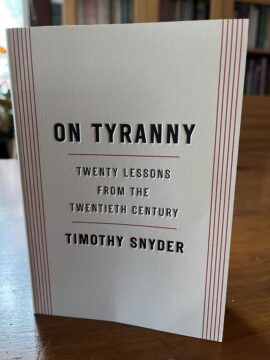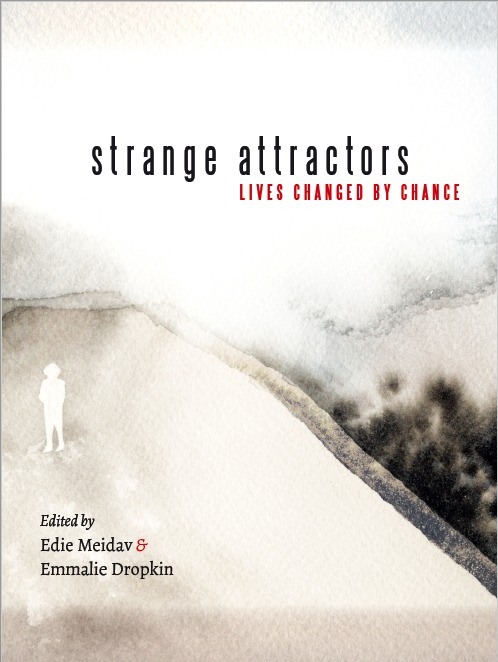by Marie Snyder

Timothy Snyder’s dictum, “Do Not Obey in Advance,” seems to be everywhere these days. It’s the title of the first chapter of his book out in 2017: On Tyranny: Twenty Lessons from the Twentieth Century, which is worth a revisit along with conformity experiments that back up his concerns and some clarification from a recent podcast.
When I first read this book seven years ago, it seemed like a concern for a far off future that would surely not happen in my lifetime. But it has lately reemerged as a prescient warning, and now there are more obvious signs that we need a path through potential political ruptures. In the first few pages, Mr. Snyder points out the power we have in avoiding acceptance of tyranny and the danger we fall into if we do obey:
“After the German elections of 1932, which permitted Adolf Hitler to form a government, or the Czechoslovak elections of 1946, where communists were victorious, the next crucial step was anticipatory obedience. Because enough people in both cases voluntarily extended their services to the new leaders, Nazis and communists alike realized that they could move quickly toward a full regime change. The first heedless acts of conformity could not then be reversed. …As the political theorist Hannah Arendt remembered, ‘when German troops invaded the country and Gentile neighbors started riots at Jewish homes, Austrian Jews began to commit suicide.'”
It’s the mere act of going along that could determine if we lose another mass of people in heinous ways, divided apart from among us in one way or another. We’re seeing that unnerving agreement already in some political speeches and pretty mainstream news outlets.
Mr. Snyder writes about Stanley Milgram’s attempts to “show that there was a particular authoritarian personality that explained why Germans behaved as they had” with his shock experiments conducted on hundreds of people. Instead, when most of his participants shocked another person until their perceived death, “Milgram grasped that people are remarkably receptive to new rules in a new setting. They are surprisingly willing to harm and kill others in the service of some new purpose if they are so instructed by a new authority.”
This experiment was one of many that came after WWII to try to figure out what could possibly have compelled regular people to participate in the rounding up and gassing of millions of people. Hitler couldn’t have done all that on his own, but he was able to sway the masses to join in. We need to be aware of this stark reality to ensure we, ourselves, don’t end up passively agreeing to harm others or allow harm to come to others. Read more »

 According to Donald Trump, in
According to Donald Trump, in  A.S.: Liesl, I love the part in your story where a pack of kids is playing “Murder in the Dark” and the young narrator’s crush, who plays the part of the killer, draws near her in the dark yard: “I didn’t try to back away, I thought maybe he was going to kiss me, but then he killed me which was so predictable.”
A.S.: Liesl, I love the part in your story where a pack of kids is playing “Murder in the Dark” and the young narrator’s crush, who plays the part of the killer, draws near her in the dark yard: “I didn’t try to back away, I thought maybe he was going to kiss me, but then he killed me which was so predictable.”